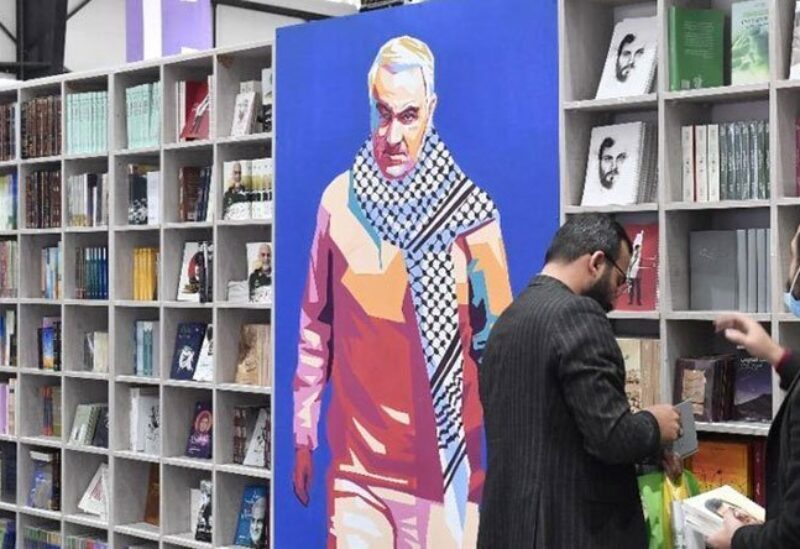
Beirut Arab and International Book Fair
Shafeeq Badr, a Beiruti activist, dared to “reach” the “stand” of Dar Al-Mawadda for translation and publishing, at the Beirut Arab and International Book Fair, and chanted:
“Beirut free, Iran, go out, ” hitting a picture of the former commander of the Quds Force in the Iranian Revolutionary Guard, Qassem Soleimani, raised on the “stand.”
Two young men hastened to beat him severely, with stinging expressions, and he was admitted to the hospital due to severe injuries.
This incident is not accidental by any means. Shafiq Badr stores Beirut and patriotic feelings against Iran and its symbols, especially Qassem Soleimani. The book fair incident is not isolated in time and place, rather, it comes in the context of the confrontation between the sovereign powers and the pro-Iranian forces , especially since the sovereign powers accumulate a series of practices of the forces supporting or affiliated with Iran, about which it is no longer permissible to remain silent.
Squares in towns have been named after Qassem Soleimani, where statues of him were raised. The airport road was filled with giant pictures of Soleimani, Khomeini and Khamenei.
These images are not a source of relief to the people of Beirut, and to the majority of the Lebanese in general. Expressing their rejection takes many forms, including the objection through social media, including statements by political forces, and the bold field objection made by activist Shafiq Badr.
So, the incident is not singular, although some try to portray it in this context. The incident is political par excellence, expressing the rejection of “Iranian hegemony” that begins with Hezbollah’s 100,000 missiles, and does not end with the raising of Qassem Soleimani’s picture in the Arab Book Fair.
Some might say that the chants that were chanted, and that the image of Qassem Soleimani was smashed, contradicted the slogan “pluralism and freedom of expression,” but the response to this saying comes as follows: “When were Iran and Hezbollah with pluralism and freedom of expression? They use these terms when they are in their interest, and forget them when they no longer serve them.”
Followers ask: Where is the pluralism and freedom of expression when Luqman Selim was assassinated?
Where is the pluralism and freedom of expression when every opposition Shiite is accused of being an “embassy Shiite” (meaning the US embassy in Awkar)?
What happened in the book fair is a field continuation of what started politically and through social media, so it should not be underestimated at all. Most of the major movements started with modest but expressive moves, such as those made by Shafiq Badr.
As for the lesson of what happened, it is not permissible to further provoke the Beirutis in particular and the Lebanese in general: from considering the “Battle of May 7” a glorious day, to describing the accused in the assassination of the late Prime Minister Rafik Hariri as “saints,” to raising pictures of Qassem Soleimani on the airport road and naming squares In some villages and towns after him, up to having his picture raised in the Arab and International Book Fair. These provocations constitute the “pushing force” to object to Iranian hegemony, and this objection is to grow, and not to recess, so beware of underestimating it.